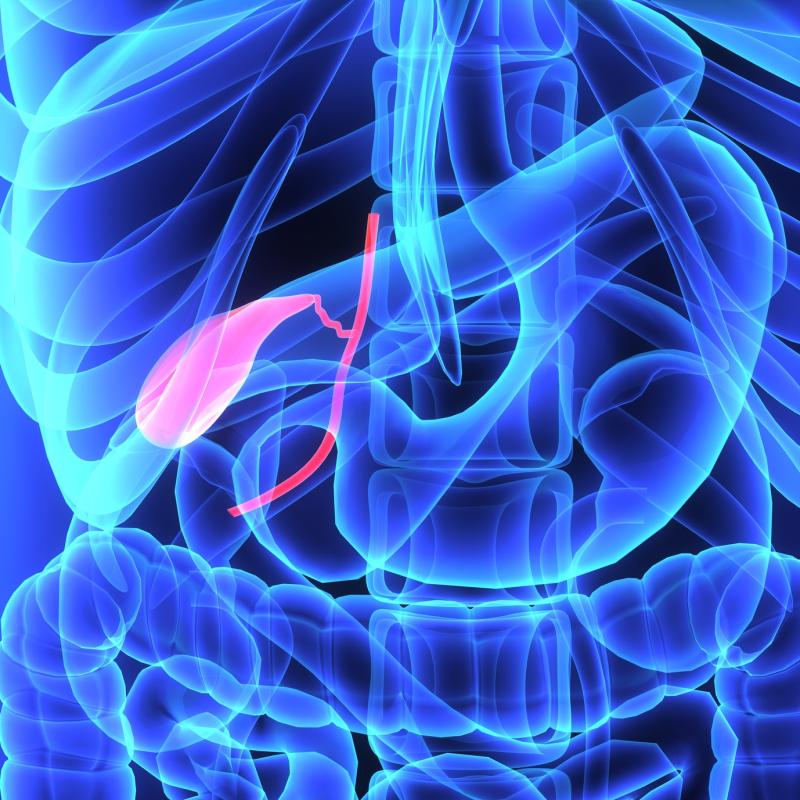 Those with a history of gallstone disease have a 23% increased risk for coronary heart disease.
Those with a history of gallstone disease have a 23% increased risk for coronary heart disease.Obeticholic acid (OCA) treatment elevates fibroblast growth factor 19 (FGF19) levels in human bile which may, in turn, lead to excess risk of gallstone development, a new study has found.
Researchers randomly assigned 20 patients awaiting laparoscopic cholecystectomy to receive either 25 mg/day OCA treatment (n=10; mean age, 48.8±8.9 years; 8 females) or placebo (n=10; mean age, 50.8±13.3 years; 8 females) for 3 weeks. Levels of serum bile acids and FGF19 were measured before and after treatment.
Participants treated with OCA showed a threefold increase in FGF19 relative to placebo (40.3±16.5 vs 13.5±13.1 ng/mL; p<0.005). The same elevation was observed for FGF19 gene expression in the gallbladder; such enrichment was absent in liver tissues. OCA treatment likewise increased the expression of downstream targets of FGF19.
This suggests that, despite an unelucidated mechanism of action in humans, FGF19 may promote gallbladder relaxation and the secretion of mucin, which may nucleate the formation of gallstones, the researchers explained.
OCA treatment likewise led to significant drops in endogenous serum bile acid concentrations, as well as the bile acid synthesis marker. The same was true for the levels of total lipids in the gallbladder relative to placebo (102.1±55.3 vs 228.0±95.5 mmol/L; p<0.01). This led to a significantly greater cholesterol saturation index in the OCA group (2.8±1.1 v 1.8±0.8; p<0.05).
Taken together, the increased gallbladder relaxation and filling, as a consequence of higher FGF19 levels, and cholesterol saturation may compound the risk for gallstone formation and necessitate better vigilance, the researchers said.